We recently spoke to the extraordinary Marcus Wyatt, an award-winning musician whose talents as a trumpet player, composer, arranger, and bandleader have made waves both locally and internationally. Hailing from Gqeberha in the Eastern Cape, Wyatt has become a cornerstone of South Africa’s jazz landscape over the past three decades. His musical journey has taken him to stages around the world, yet he remains deeply connected to Joburg, often found leading electrifying jam sessions at Six Cocktail Bar in Melville every Wednesday night.
Wyatt’s influence extends far beyond his performances. He has collaborated with legendary artists such as Miriam Makeba, Abdullah Ibrahim, and Manu Dibango, and has directed prestigious ensembles like the Grammy-winning Metropole Orkest at the Royal Albert Hall. His innovative spirit shines through his work with the ZAR Jazz Orchestra, which seamlessly blends traditional and contemporary sounds, and his leadership of the Blue Notes Tribute Orkestra and the eclectic Afrobalkan ensemble, Bombshelter Beast.
As we catch up with Wyatt ahead of the Johannesburg Philharmonic Orchestra (JPO) Symphonic Jazz Festival 2024, where he will once again lead the ZAR Orchestra in a thrilling collaboration with the JPO, we are reminded of his profound impact on the city’s musical heritage. This festival, set to take place from Fri, Sep 20 – Sun, Sep 22 at Linder Auditorium, promises to be an unforgettable celebration of South Africa’s rich jazz legacy. Book your tickets here.
Join us as we delve into the world of Wyatt, a true maestro whose passion for music and dedication to his craft continues to inspire and enthral audiences in Joburg and beyond.
"It’s really about the people in this place. You can go to so many different places in Joburg, and your experience is shaped by the people you meet. This is a migrant city, and that, for me, is what makes it so special."
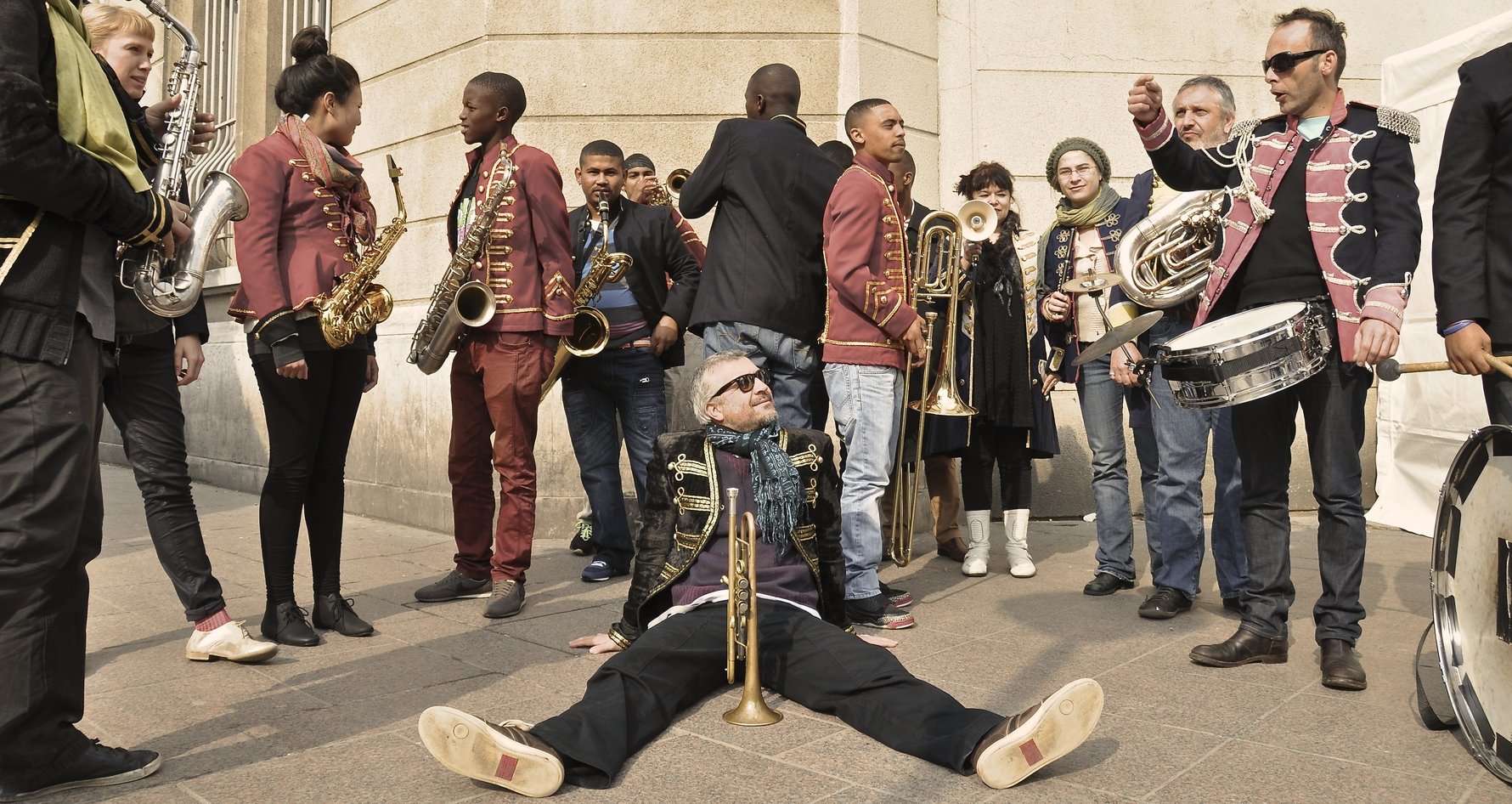
How does Joburg find its way into your music?
We are all quite influenced by this crazy city, this mad urban environment. Originally, I’m from Gqeberha (formerly Port Elizabeth), and I’ve lived in Cape Town and Amsterdam. But Joburg has this unique, vibrant pulse. It’s a major African metropolis, cosmopolitan, and full of diverse sounds. You hear a lot of noise, but within that noise, there’s music. It is that aspect of the city I hope has found its way into my music.
How did your exposure to folk and blues music at a young age influence your approach to jazz?
I’m not sure how it has influenced my approach to jazz. I do know that, on a practical level, there are elements within my music where, for instance, the acoustic guitar, not necessarily something associated with jazz music, is something I often gravitate towards, especially within my big band writing and various other projects. Blues, I think, has influenced everyone’s approach to jazz, considering that jazz comes from blues. At its core, blues is in all jazz. As long as you always remember that, it will always come out.
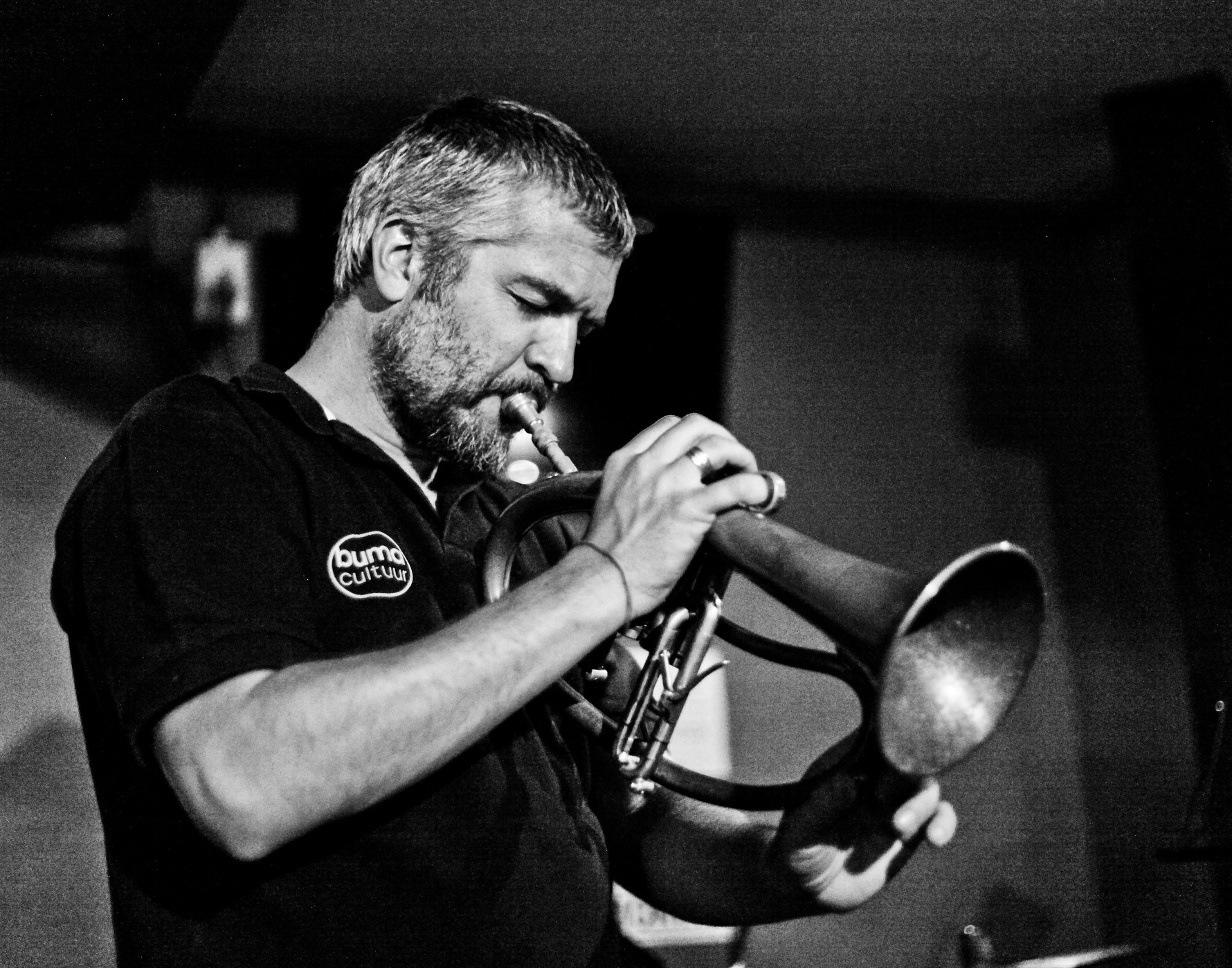
As a trumpeter, how has your approach to jazz evolved over the years?
My approach to jazz over the years as a trumpet player is tied up with the question about Joburg. I have moved a little away from the more traditional approach to jazz. A lot of South African jazz music was originally influenced by American jazz music, and we still are to a large degree. But for me, I started to be more influenced by world music, especially the folk music of South Africa and Africa, and African music in general. I try to incorporate a more organic South African experience, which, as I said, is not necessarily an intentional thing. It’s something that you hope, as a musician, comes out in your music naturally.
How do you blend the classical music training you received with your love for jazz in your compositions and performances?
In classical music training, a lot of it is about technique and learning to deal with your instrument. This is something that comes out in many people’s jazz music. It’s not necessarily that you would hear the influence of a certain instrument from classical music, but learning classical music involves a lot of focus on the instrument, the sound you make, and your technique. These are all practical applications. In terms of composition and performance, there is a large element of discipline in music. It’s always important to maintain your technique and to have a good blend between the composition itself – the skeleton of the composition – and be able to take that and be free with it. That’s where the two meet.
"We are all quite influenced by this crazy city, this mad urban environment.
"
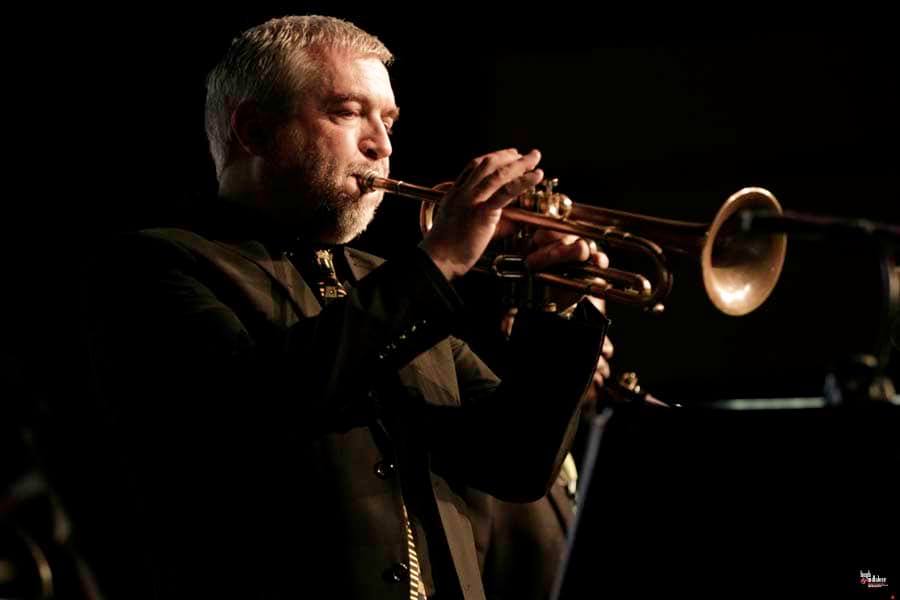
Jazz is often seen as a form of personal expression. How has jazz helped you express yourself both musically and personally?
Well, yes, it is. And that's a very personal thing, I guess. So every person will hopefully have their personality shine through. That's the amazing thing about music and art; you get to feel like you might know someone a little bit better because their own experience does come through in the work. And I guess with jazz, it's the freedom to embrace all your influences and allow them to come out in your music. It is a personal thing.
Can you share how specific life experiences have shaped the way you compose or perform jazz music?
Well, my whole life has shaped the way I compose and perform. Specifically, I couldn’t, I don’t think I could tell you. I mean, I did move to Amsterdam for a year and lived in Holland. And I think that certainly helped to shape my identity. I was younger; I turned 30 in Amsterdam. My identity was in question at that time. But living elsewhere made me realise how South African I am, how I’m rooted in this place. And I think that started to come through more in the music once I’d had that experience. Everything that we go through shapes how we compose or perform.
How do you stay inspired and innovative in your jazz performances after such a long career?
Well, I try to stay young inside. Sydney Mavundla, the great tenor player I used to work with a lot, always inspired me. He said that every time you perform, it could be the last time, and you have to approach it like that – like a life or death situation. It sounds extreme, but music is really all about energy. It’s about grabbing that energy and being able to channel something very special. You should never take that for granted. Every time you engage with music, it is a gift. If you never take it for granted, you will always stay inspired and, hopefully, innovative.
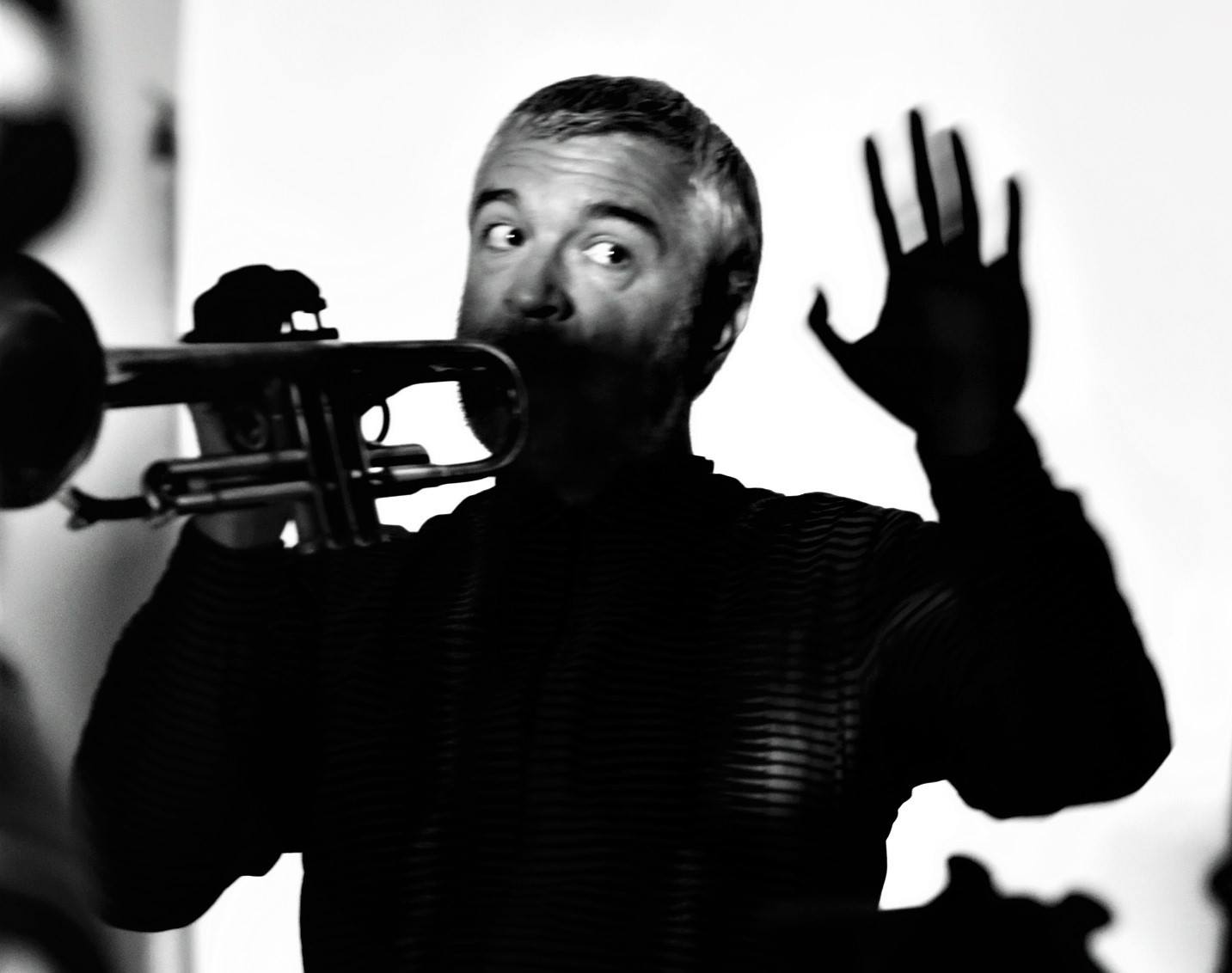
What are you most looking forward to for this upcoming ZAR Orchestra performance with the JPO?
The ZAR with the JPO, I just love that sound! I love large ensembles. Having access to a full big band, plus strings and extra woodwinds and all the orchestral instruments, with a quartet you get to paint with three or four colours, but with this, you get to paint with 25 different colours. It’s just exciting. The music can speak and move in different ways because of all the different kinds of sounds, textures, and colours you can get out of the orchestra. It’s a wonderful thing. It’s not really having two orchestras on stage; it’s having one big orchestra, one jazz orchestra on stage. That is how it feels. I think everyone gets quite excited about it. The musicians are excited about it and the dynamic is really cool.
Favourite jazz venues, and why?
I don’t have a favourite. Jazz venues in Joburg have changed so much. To be honest, I love playing in small acoustic spaces the most, where there’s no amplification and you can just play. I used to enjoy playing gigs in Sophiatown. But yeah, I have always been a fan of small intimate spaces where you can play acoustically. Of course, I’ve been very fortunate to play in some amazing venues throughout the world. Probably the most special would have been the Royal Albert Hall in the west. But like I said, if I could choose, it’s usually going to be a small space.
What legacy do you hope to leave on the jazz scene?
The legacy I hope to leave is just a love for music and a sharing of music. And, you know, I run a jam session. I’ve been running a jam session every Wednesday for many years. It’s really great to see young, new generations of musicians come through that jam session. The music scene has done a lot for me, so it’s nice to be able to give something back. Hopefully, I can leave a legacy of commitment to South African music and to doing things a little differently.
What brought you to Joburg or what makes you stay here?
Curiosity brought me to Joburg. What makes me stay here? Oh, that is a good question. The people, the people make me stay here.
Home is...
Home is Sophiatown. Home is also wherever my beautiful fiancée, Romy Brauteseth, is. She’s an amazing musician, a bass player, and a graphic designer. As long as we are together, it always feels like home. My family is very scattered around the world, so I have a bit of a travelling bug in me. I love to travel. I guess wherever my people are is kind of the more philosophical answer to that question.
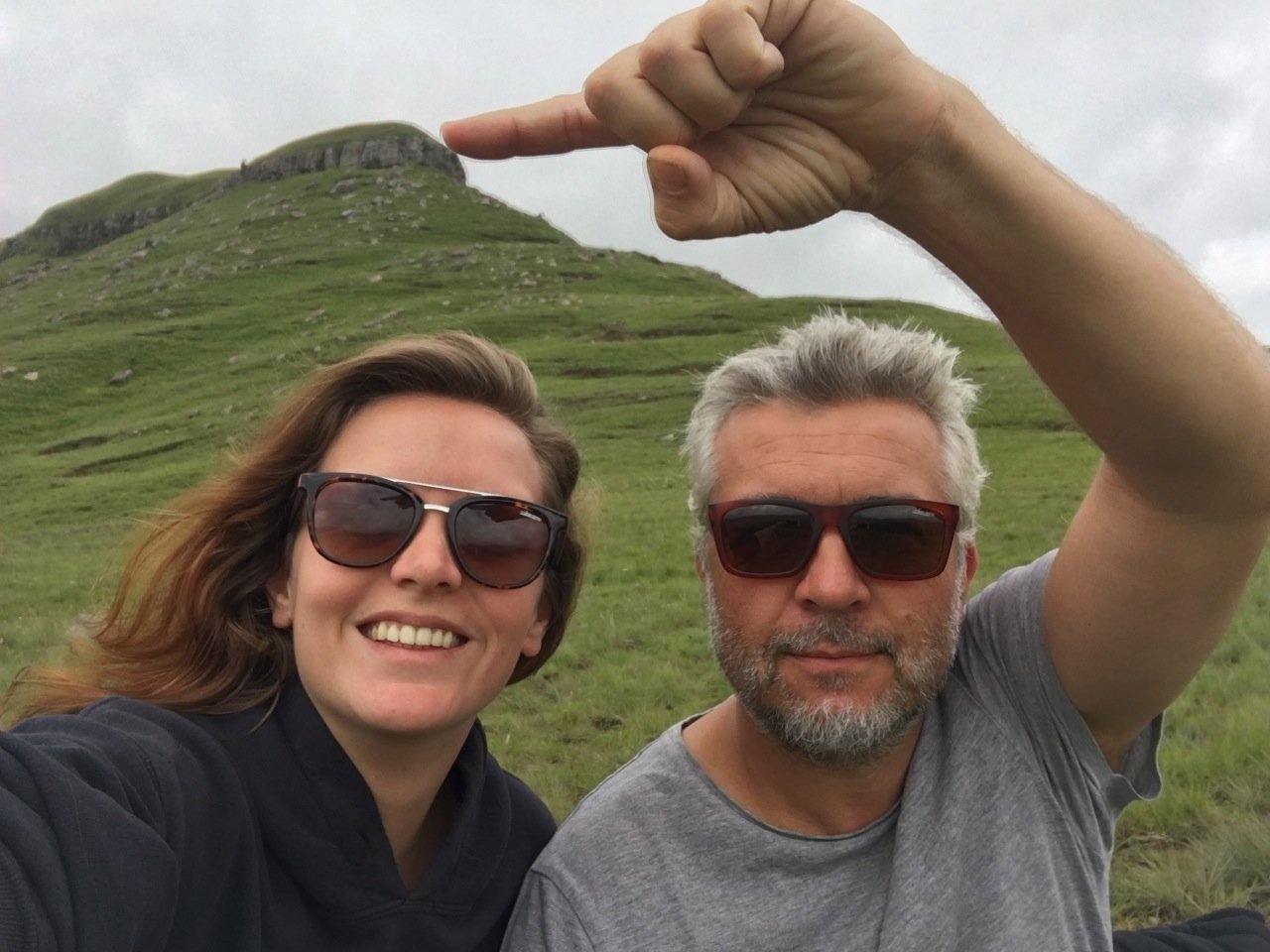
Your favourite Joburg suburb, and why?
I love Sophiatown because it’s still like a proper neighbourhood here. There aren’t a lot of high walls or electric fences. The kids are still playing in the park outside the flats. But I love a lot of different suburbs. There are some beautiful, leafy suburbs in Joburg. And I also love the outer regions of Joburg for the space.
What three things should a visitor not leave Joburg without seeing or experiencing?
Apartheid Museum, the City Centre, Gold Reef City, and many others. But I think it’s really about the people in this place. You can go to so many different places in Joburg, and your experience of this place is shaped by the people you meet. You might meet amazing people in Soweto or in Melville every Wednesday night. This is a migrant city, and that, for me, is what makes it so special. It really is about the people.
One song on your Joburg soundtrack?
The song that always makes me think about Joburg is Hugh Masekela’s Stimela. While it’s not specifically about the city, it evokes strong memories of Joburg for me. [It] carries some negative connotations due to its connection to the legacy of apartheid and the gold mining industry. But that song always makes me think of this place.
Thandi Klaasen has a song called Sophiatown. A lot of the music that the young guys write, especially the young jazz musicians, makes me think of this place. It’s so diverse that it’s hard to pin down one sound and say that is what Jo’burg sounds like. To me, it’s so many things. I have a band called Bombshelter Beast, and we started blending Balkan influences and various other things. Kwaito, in particular, I love, and that always reminds me of this place. But so does the old marabi and all of that traditional swing jazz music that came out of this place and Sophiatown.
If you were the Joburg mayor for one day (average tenure) what would you change?
Yeah, if I were mayor for one day and could sign something into legislation, it would be to have the city support either a venue or two or start a big band or a collective where musicians could come together, be commissioned to write music, and put on concerts with big ensembles around the city. I think we’re very obsessed with money and very money-driven, but I would love to see more great quality music being presented in spaces in Joburg for free. I know that comes with a whole lot of other risks in a city this crazy, but that’s for me.
Favourite Joburg label, and why?
At some point, it was Clipper Jeans. These guys were based in Fordsburg. We used to wear a lot of that with Bombshelter Beast.
What makes someone a Joburger?
I think someone who’s driven, someone who has an idea of where they want to go, and someone who doesn’t pretend to be something they are not. Most importantly, I think Joburgers are quite warm and friendly, and they’ll talk to anyone.
What do you love most about Joburg?
The people.
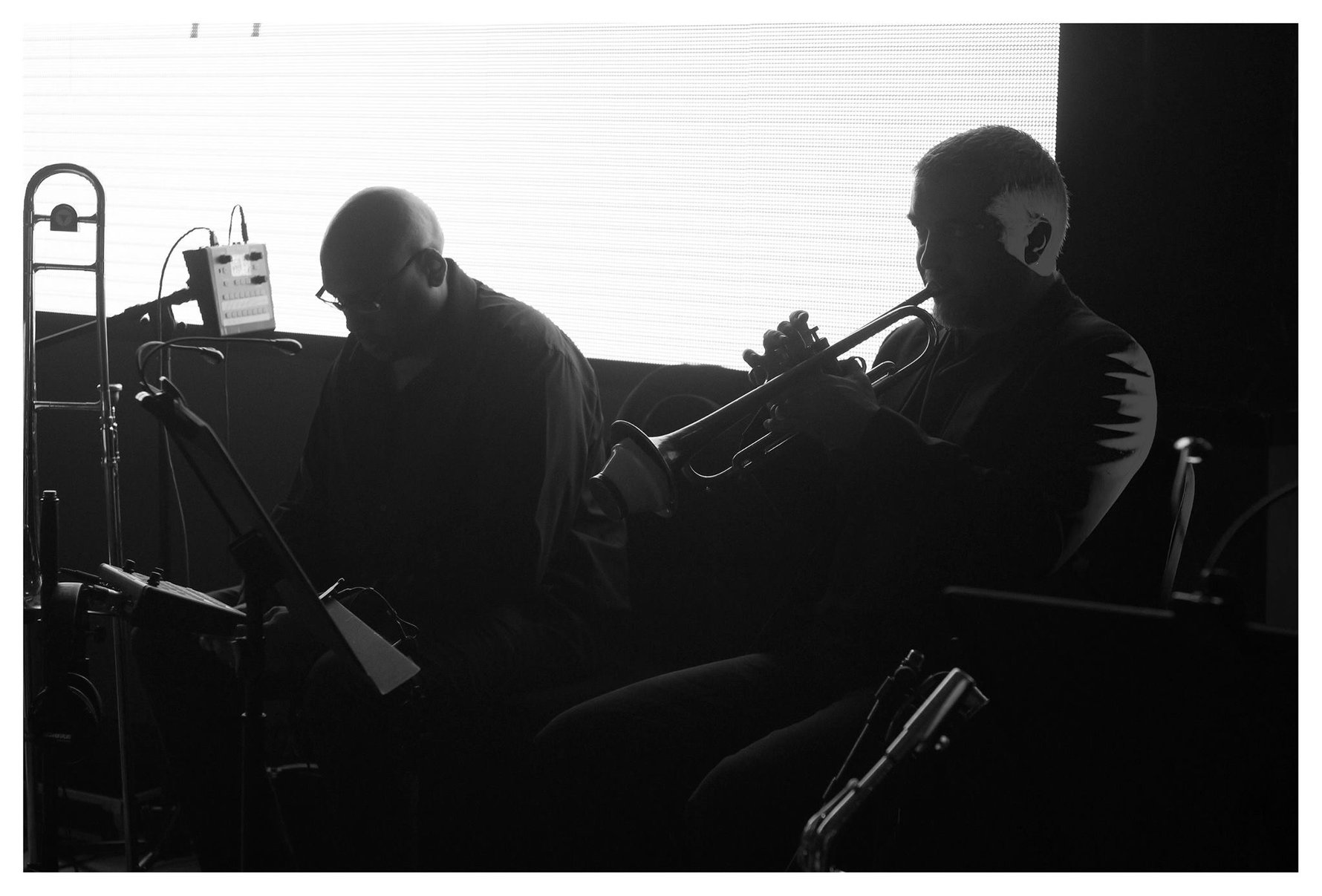
What do I like the least about Jo'burg?
Some of the people! The madness, I guess; the logistical nightmare at the moment. There are (broken) traffic lights, our roads, potholes. The fact that you have to come home from a gig late at night and drive down dark, dark, dark streets. That is not a vibe.
Your number-one tip for a first-time visitor to Joburg?
Have an open mind. Don’t have any preconceived ideas.
One Joburg personality whom you would honour with the freedom of the city if you could, and why?
That’s tough. It might be a guy called Jonathan Rees, a friend of mine who is a photographer. He’s got such a great spirit. [Ed's note: Jonathan Rees is a huge jazz supporter who also generously runs a WhatsApp group where he shares what's happening on the Joburg jazz scene weekly. Text him to join on + 27 76 185 1827].
The perfect weekend in Joburg includes...
Good music, good food, and a bit of chilling. Usually, it includes a little bit of madness. These days, I’m not as crazy as I used to be, so my perfect weekend involves more chilling than it used to. Maybe a sundowner at the Irish Club in Linden, which is always a favourite hangout. Or a walk at Emmarentia Botanical Gardens. I love that place. Or Albert’s Farm. I take the dogs there.
Three words that describe this city
Mad, chaos, and love.
On Fri, Sep 20 Wyatt will lead the JPO and his own ZAR Jazz Orchestra in a celebration of South Africa’s rich jazz legacy. Featuring iconic jazz compositions from legends such as Hugh Masekela, Miriam Makeba, and Abdullah Ibrahim, alongside contemporary stars such as Feya Faku and Benjamin Jephta. Book your tickets here.
Check out some of our previous #MyJoburg interviews for more insights into the city:
#MyJoburg with Flo Bird, heritage hero
#MyJoburg with Hannelie Coetzee, artist and placemaker
#MyJoburg with Nickolaus Bauer, journalist and Dlala Nje co-founder


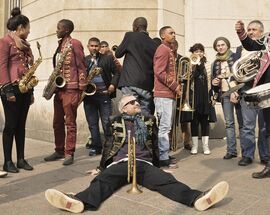
_m.jpg)
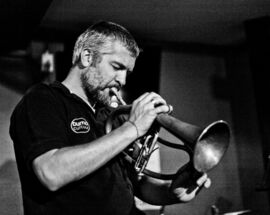


Comments